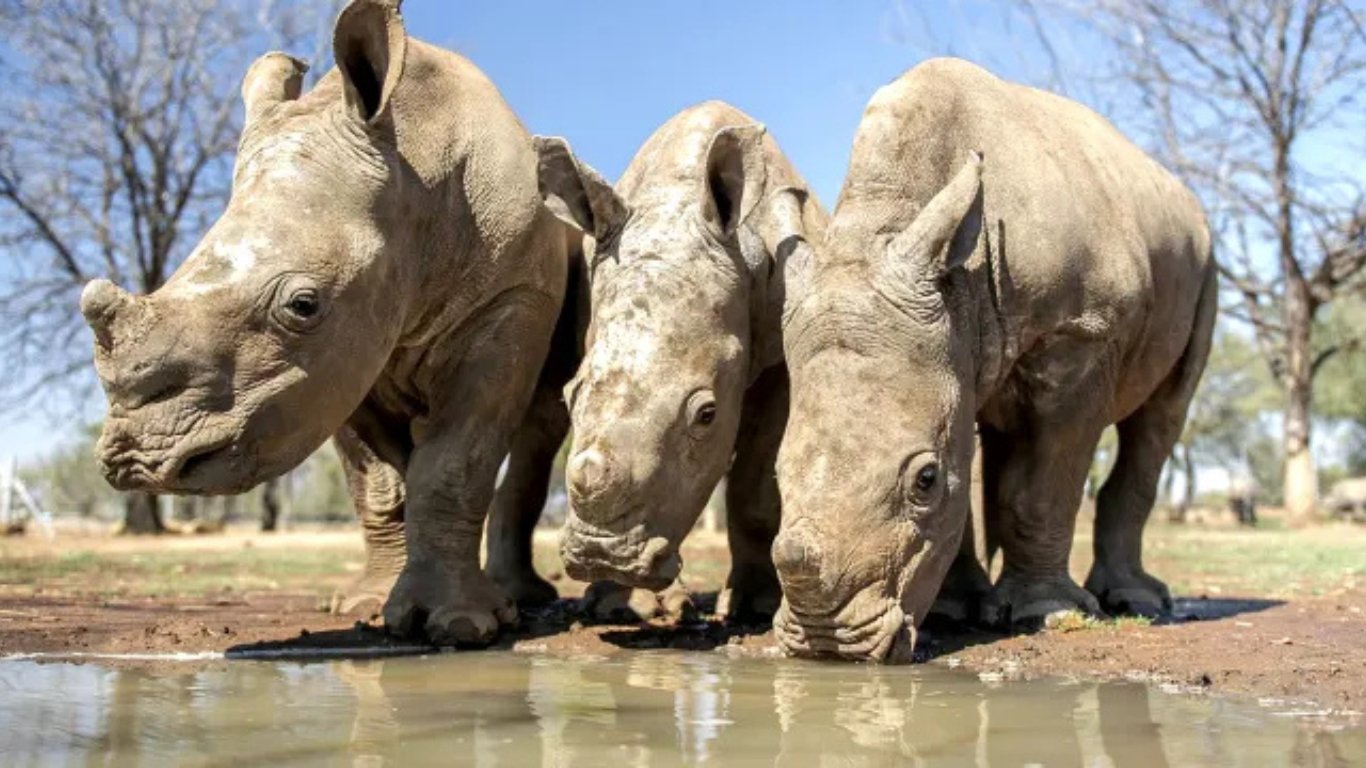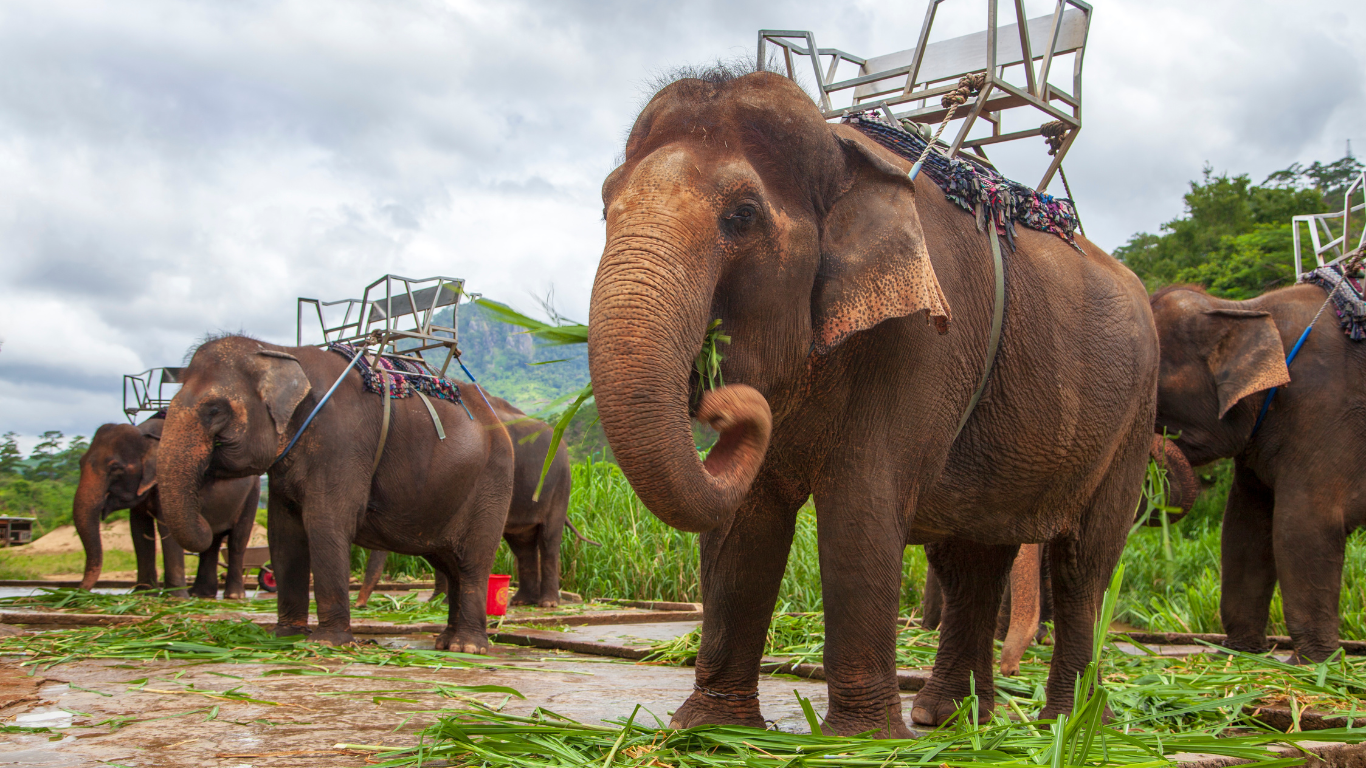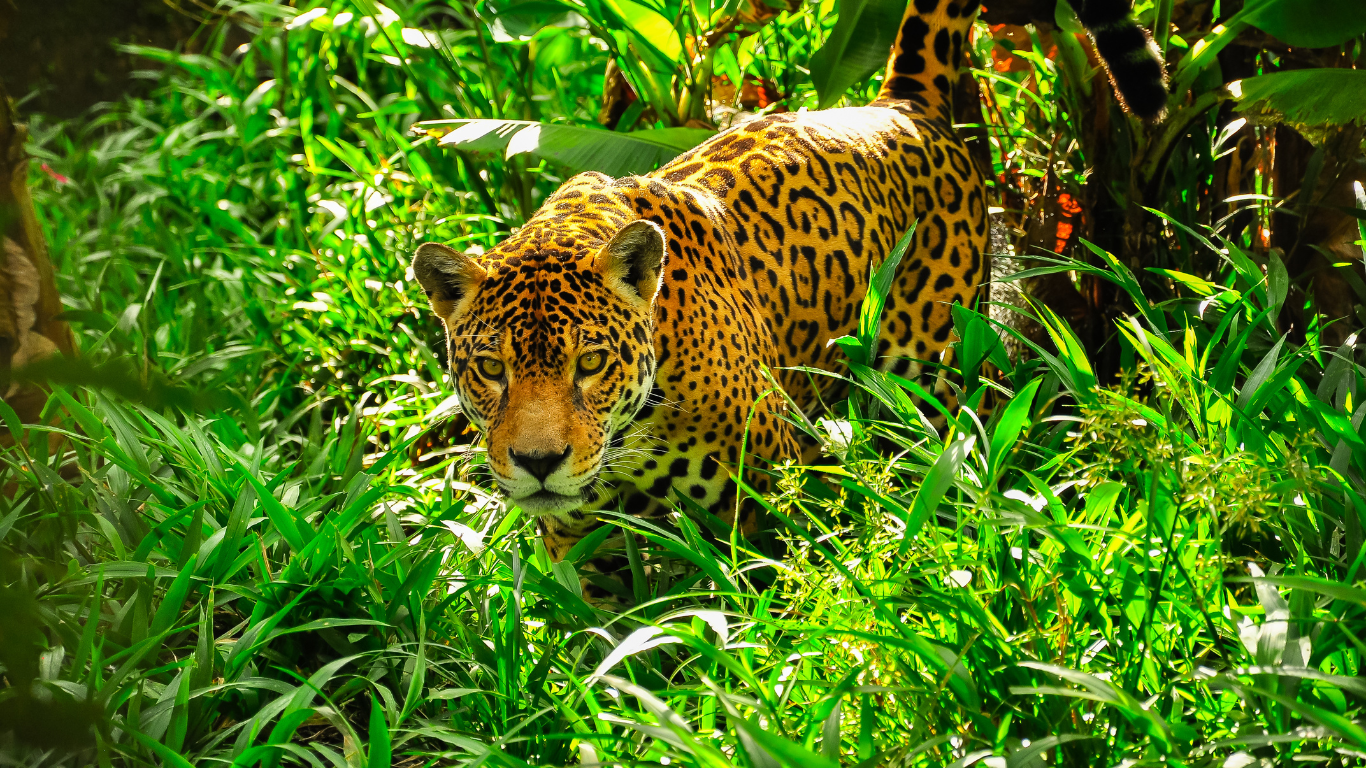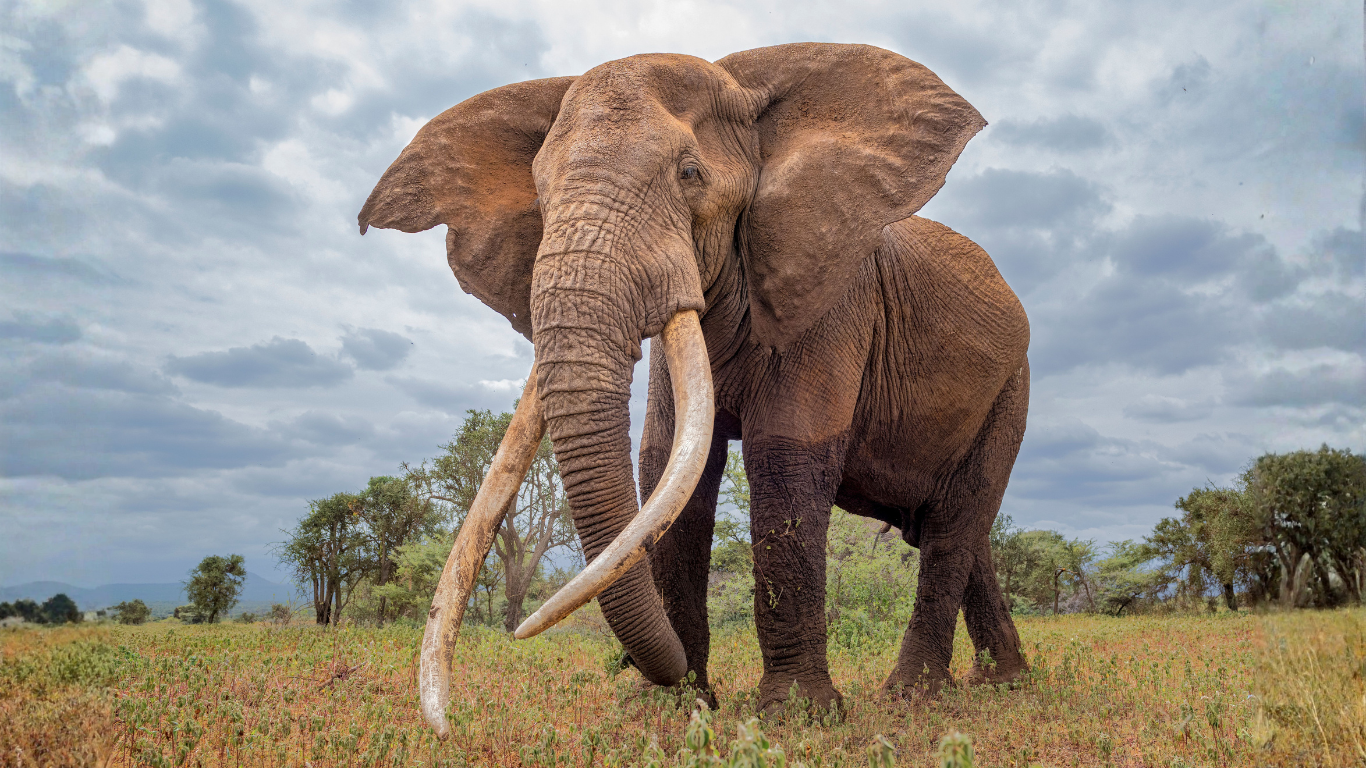Article written by Tony Carnie
Originally published by The Daily Maverick, 19 August 2025
South African “rhino baron” John Frederick Hume built up the world’s biggest private herd of more than 2,000 rhinos, betting to make a fortune by selling their horns legally to traders in the Far East.
But his dreams turned sour roughly two years ago when he was forced to sell his rhinos after failing to overturn an international ban on the sale of rhino horns from this increasingly threatened species — and now he is in the dock with five fellow suspects, facing more than 50 criminal charges centered around allegations of theft, fraud, and “possible racketeering and money laundering.”
The 83-year-old former property developer, who grew up on a sheep farm in the Cape and a cattle ranch in Zimbabwe, was released on R100,000 bail after appearing in the Pretoria Magistrates’ Court on Tuesday, 19 August.

With him in the dock were two attorneys, Izak du Toit and Elizabeth Catharina van Niekerk; former rhino ranch manager Johannes Hennop; insurance broker and part-time farmer Mattheus Pogenpoel from the Free State; and Clive John Melville, a relative of Hume who has previously been charged with forging a document to falsely authorise the transport of rhino horns belonging to Hume.
According to the National Prosecuting Authority, all six suspects are alleged to be involved in an illegal rhino horn trafficking syndicate.
“It is alleged that between 2017 and 2024, the accused operated an international rhino horn trafficking syndicate and defrauded the Department of Forestry, Fisheries, and the Environment (DFFE).
“They allegedly obtained permits to trade rhino horn locally while intending to channel the horns into illegal international markets in Southeast Asia. The fraudulent scheme is estimated to involve 964 rhino horns valued at R250 million.”
Further details of the charges against Hume and his alleged conspirators will emerge in Daily Maverick shortly — including claims that they recruited homeless people as part of a fraudulent scheme to disguise the illegal sale of rhino horns destined for black market dealers in Vietnam, China, and other Far East nations where rhino horn is prized as a cure for hangovers and cancer or simply as a status symbol due to its global rarity.

Search and seizure raids
It is understood that the Special Investigating Unit (the Hawks) has been on the trail of Hume and his alleged accomplices for at least eight years, culminating in a series of search and seizure raids earlier this month that led to the confiscation of numerous documents, as well as batches of M99, a powerful veterinary drug used to immobilise large mammals such as rhinos.
Hawks spokesperson Lieutenant Colonel Christopher Singo on Tuesday said Hume and five fellow suspects handed themselves over to the Hawks investigation team at the Sunnyside Police Station in Pretoria following a “complex investigation into transnational trafficking of rhino horns.
“Investigations discovered an allegation of fraud against the Department of Forestry, Fisheries and Environment (DFFE), where the suspects allegedly applied for the permits to sell and buy rhino horn locally, but they were earmarked for the international illegal markets in Southeast Asia.
“Over the past 15 years, more than 10,000 rhinos have been slaughtered by poachers and international syndicates hoping to profit from the illicit smuggling of horns.
“The identified fraudulent permit scheme accounts for an estimated 964 rhino horns with an estimated value of millions of rands. Further investigation revealed that the DFFE was allegedly defrauded by a well-designed scheme by the suspects to traffic rhino horns and to participate in the international illegal rhino horn markets.”
Singo noted that rhino horns can be bought and sold legally to South African citizens, provided that the seller and buyer apply for permits in terms of the National Environmental Management Biodiversity Act, 2004.
The DFFE is the only body that can authorise the issue of permits for the buying and selling of rhino horns at a domestic level, but in terms of an international ban, they may not be exported or sold to non-South African citizens.
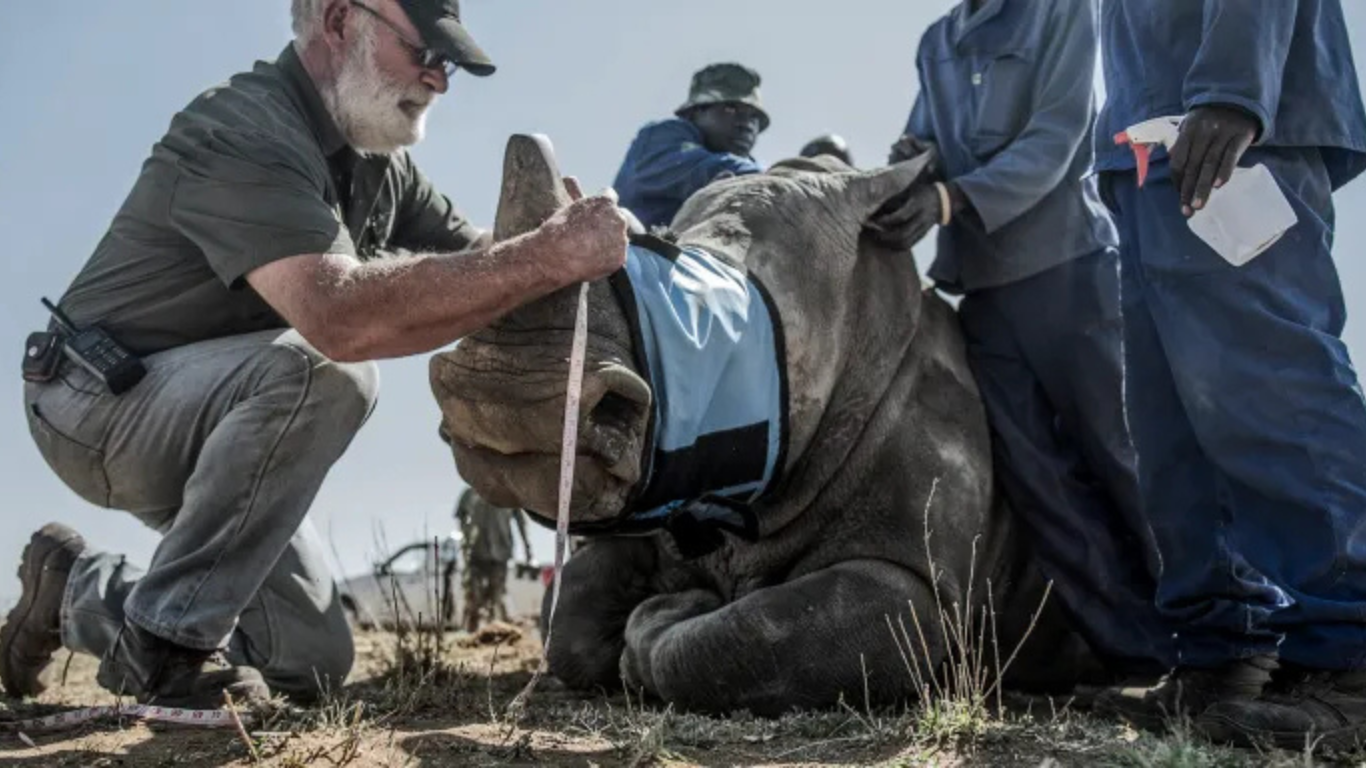
Sources have indicated to the Daily Maverick that there were attempts to disguise sales of legally registered horns by recruiting homeless people as legal domestic buyers, before the illegal export of horns to the Far East
Daily Maverick reached out to some of the suspects and their attorneys for comment but had not received responses by the time of publication.
In his WordPress web page, Hume describes himself as one of the world’s greatest rhino conservationists and “a passionate campaigner against their extinction.”
In this narrative, Hume recorded that in 1992, at the age of 50, “having made a good living from developing holiday resorts,” he bought his first wildlife ranch, Mauricedale Game Ranch, next to the Kruger National Park.
In 1993, he bought his first rhinos and “soon fell in love with this iconic species.
“For the next 13 years, he successfully bred 143 rhino calves from a breeding herd of 130 southern white rhinos, until tragedy struck in 2007. This was when he lost his first rhino to poachers. He realised then that Mauricedale’s proximity to both the Mozambican border and the Kruger National Park exposed his rhino to far too much danger, and he made the difficult decision in 2008 to relocate to the safer North West province of South Africa. This more remote location, as well as the flat expansive savanna grassland, provided the ideal habitat for his rhino and afforded much better security options.”
Captive breeding ranch
With the rhino poaching crisis escalating, Hume established the first captive breeding ranch for southern white rhinos in South Africa “to serve as a safety net for our dwindling wild rhino population numbers.”
However, with no indication that the majority of member states of the Convention on International Trade in Endangered Species (CITES) were willing to overturn the 1974 international ban on the trade in rhino horns, Hume announced in 2023 that he was selling his rhinos and packing up.
Yet, behind the scenes, Hume had a massive stockpile of rhino horns and had been implicated in suspicious rhino horn dealings in 2020 when he attempted to recover a massive haul of rhino horns confiscated by the police after a murky trading deal turned sour in the tiny town of Skeerpoort in North West.
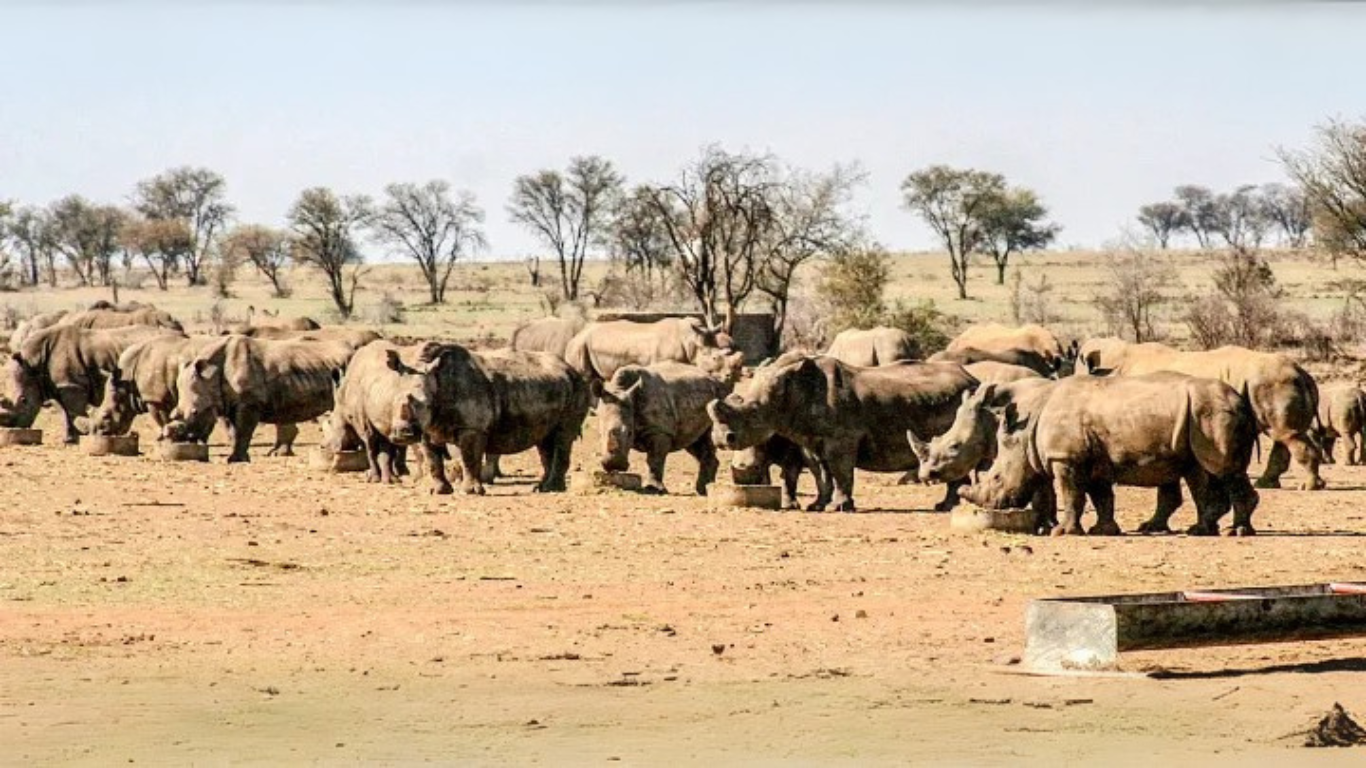
In 2015, he won a court case against former minister of environmental affairs, Edna Molewa, with the high court ordering that the moratorium on rhino horn sales was illegal because Hume and other rhino owners were not consulted properly.
The current environment minister, Dr Dion George, has hailed the arrests of Hume and his colleagues as a “decisive victory in South Africa’s fight against international wildlife crime.
“Let there be no doubt: South Africa will bring the full force of its laws against those who plunder our wildlife. This arrest proves that syndicates cannot escape justice, no matter how complex their schemes.”
The International Rhino Foundation said, “The alleged trafficking of such a massive amount of rhino horn is a huge blow to conservation efforts and casts a global shadow over the sincere work and efforts of so many stakeholders trying to protect South Africa’s rhino populations.
“This is not just a single incident but a process of criminality that has been insidiously going on for years and stimulating illegal supply channels from Africa. It is the equivalent of white-collar crime rather than the armed robbery of poaching and must be treated as such,” the foundation asserted.
“Horn stockpile leakage of this magnitude raises serious concerns about South Africa’s current systems to monitor stockpiles, issue permits and detect trafficked contraband at their ports of exit.”
Banner credit: Gallo Images / Rapport / Conrad Bornman

